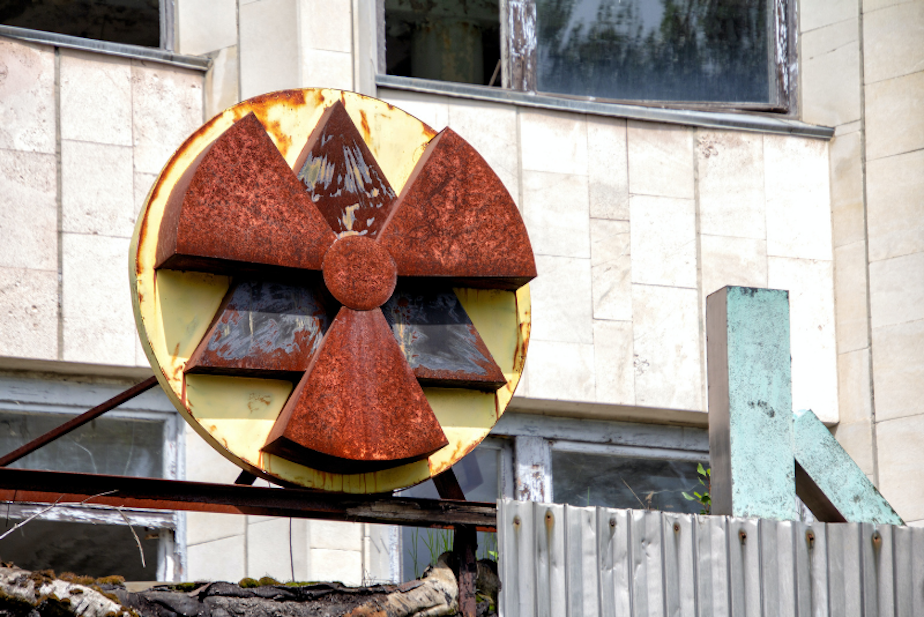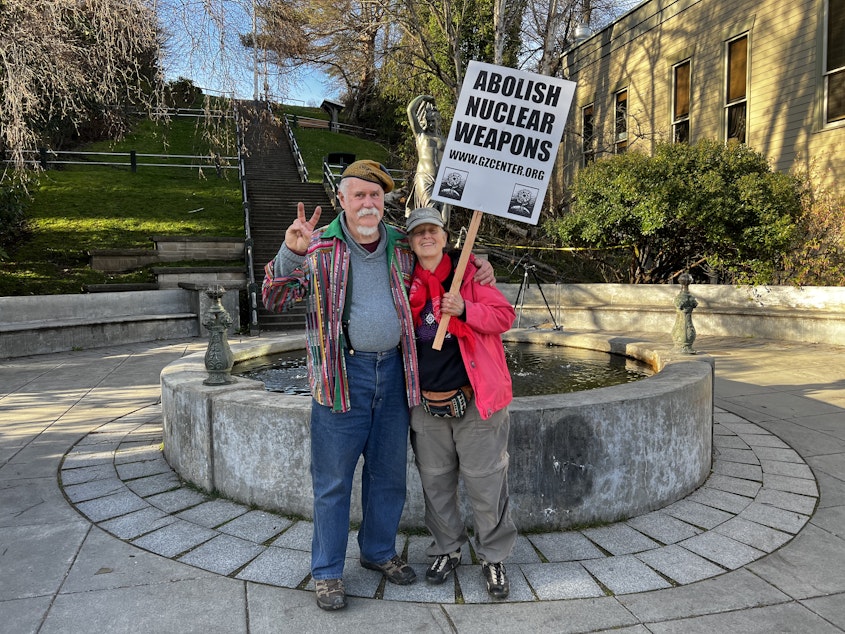How concerned should you be about nuclear radiation from Ukraine?

In the last two weeks, news of skirmishes around Ukraine's nuclear power plants are producing a lot of anxiety. That's not even taking into account that Russian President Vladimir Putin put Russian nuclear forces on high alert.
Should something unimaginable happen, what risk does nuclear fallout pose to Washington state?
Groups across Washington State are gathering to voice their disapproval of President Putin's actions, as well as any potential military involvement from the United States that might escalate to war.
In the face of Russian aggression and the instability around prominent radioactive facilities, some Washingtonians are renewing calls to disarm and dismantle nuclear weapons and sites.
RELATED: NW officials prep up for worst-case radiological event scenario
"I would say that it's a mixed feeling," said Doug Milholland, who organized a protest in Port Townsend this weekend, in response to the recent developments in Ukraine. "I see the potential for change is relatively high. This is a chance for hope."
"Mostly I'm just numb, because this has all been going on for so long," added Carolyn Wildflower, who, along with Milholland, has dedicated decades of her life to protesting nuclear weapons and their presence in Washington state. Both Wildflower and Milholland advocate for the complete abolition of nuclear weapons worldwide, asking for them to be dismantled and buried.
Sponsored

So how concerned should we be about exposure?
Anxiety over nuclear exposure can be helpful if it motivates us to learn -- but alarmism, not so much. Thankfully, there's an agency in Washington dedicated to tracking and responding to radioactive events called the Office of Radiation Protection (ORP), which operates under the umbrella of the Department of Health.
"The office has had experience with a couple of large offshore events, like Chernobyl and Fukushima," said Mike Priddy, the environmental sciences section supervisor for ORP.
Priddy noted that it is possible for radiation to travel to Washington state through the air and through marine debris. Though, in both the cases of the 1980s Chernobyl disaster and the Fukushima disaster in the early 2010s, the amount of radiative material was extremely low.
Sponsored
Chernobyl, especially, is a great learning moment for how a serious nuclear disaster might travel to Washington.
"The best defense the state had was the distance," Priddy said. "Very little actual radiation reached the state. We were able to measure it. I can still detect it in the environment."
Yes, that's right -- the ORP can still measure extremely low levels of radiation in the state today that drifted here in the 1980s. But Priddy chalks this up to the extremely sensitive equipment the ORP uses. At the height of the disaster, the average Washingtonian experienced the same amount of radiation exposure as they would on a normal cross-country flight.
"The impacts here were pretty scientifically interesting, but not a very serious issue for health," Priddy said.
Concerning any radiation exposure from the current struggle in Ukraine, the good news is that Priddy's team is very closely monitoring the news and is prepared for any potential fiascos. In the situation of a radioactive release, the state's monitors would very quickly know and can quickly alert residents — to use Chernobyl as an example yet again, it was countries outside of the Soviet Union that first caught wind of the disaster.
Sponsored
Priddy also noted that general stress over the situation has its own downstream consequences.
"More people may have died from the stress than from radiation [in Chernobyl]," said Priddy, citing a report from the World Health Organization on the subject. "Some folks got a fatalistic attitude and started exhibiting dangerous behaviors. People had to move. People were just afraid. People in at-risk populations of course have to deal with the stress even more acutely."
Priddy reiterated that the possible risk of radiation exposure is very low, and that the best thing the average citizen can do is to keep on with daily life avoid alarmist and fatalistic actions.





